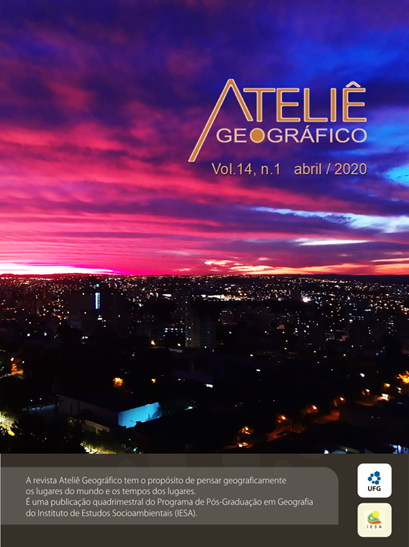The orange productive circuit in the Geographic Microregion of Jales-SP
DOI:
https://doi.org/10.5216/ag.v14i1.56409Abstract
Brazil is the world's largest producer of orange, standing out among the main exporting countries of concentrated juice of this fruit, being the state of São Paulo the largest national producer. Under the dictates of agribusiness, orange juice became a commodity and the national production of this fruit was articulated in order to serve the interests of big capital, represented by the beverage processing industries, monopolizing the market and exercising strong control over the sector. In this context, the Geographic Microregion of Jales was inserted in the space circuit of capital linked to citriculture, although most of its orange production is sold in natura in the domestic market, understood as a strategy to "dribble" the monopoly of processing industries, especially by peasants producing orange, but not escaping to the appropriation of the income of the land by the capital present in the circulation of this commodity. Starting from such assumptions, this work aims to analyze the process of appropriation of land rent by capital in the space circuit of orange production in the Geographic Microregion of Jales.
Keywords: Citriculture; Geographic Microregion of Jales -SP; Agricultural Commodities.
Downloads
Downloads
Published
How to Cite
Issue
Section
License
Autores que publicam nesta revista concordam com os seguintes termos:- Autores mantém os direitos autorais e concedem à revista o direito de primeira publicação, com o trabalho simultaneamente licenciado sob a Licença Creative Commons Attribution que permite o compartilhamento do trabalho com reconhecimento da autoria e publicação inicial nesta revista.
- Os autores não serão remunerados pela publicação de trabalhos na Revista Ateliê Geográfico. Além disso, os conteúdos publicados são de inteira e exclusiva responsabilidade de seus autores, ainda que reservado aos editores o direito de proceder a ajustes textuais e de adequação às normas da publicação.
- Autores têm permissão e são estimulados a divulgar seu trabalho online (ex.: em repositórios institucionais ou na sua página pessoal), já que isso pode gerar alterações produtivas, bem como aumentar o impacto e a citação do trabalho publicado (Veja O Efeito do Acesso Livre).


